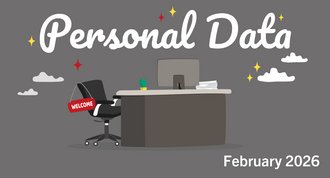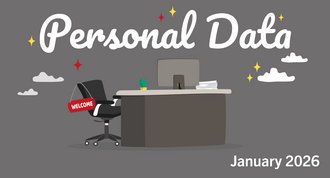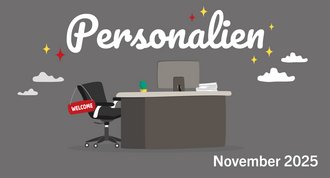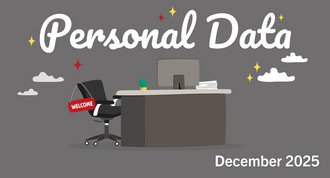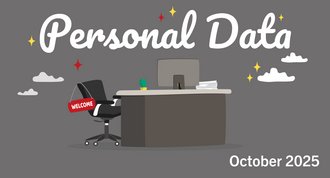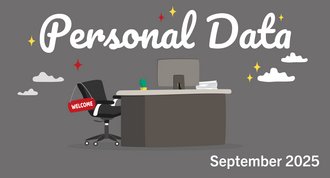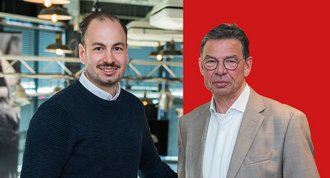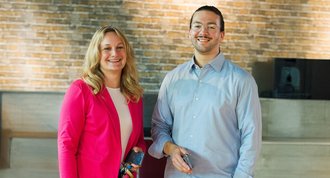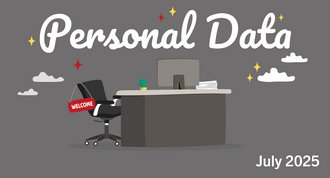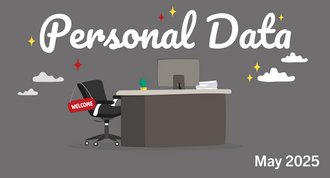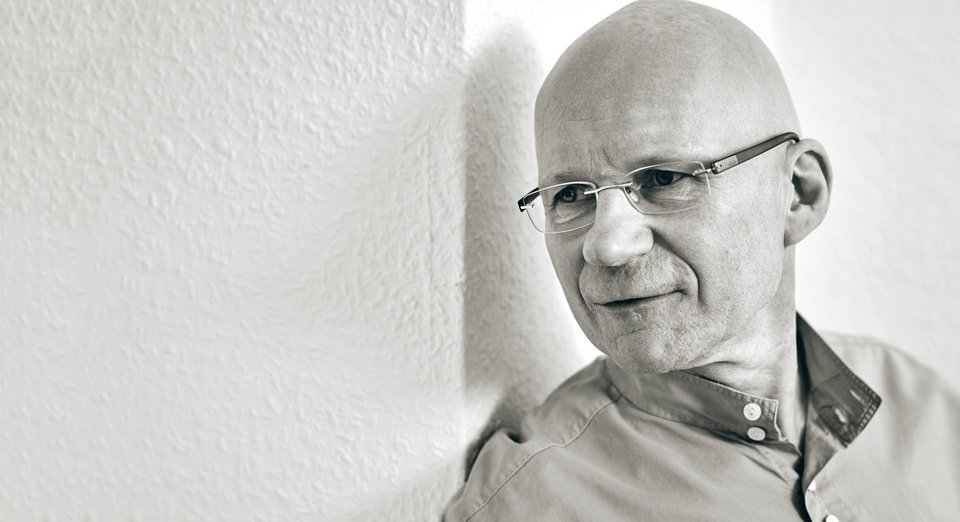
Ageing is a process. And those who actively shape this process at an early stage remain productive for a long time - physically, mentally, spiritually - and therefore also professionally: there are a good two decades of valuable and valuable work between midlife crisis and retirement. Time to take up the cudgels for ageing.
There are many years between middle age and retirement, years that should not be wasted, especially in view of demographic change. Not by employers, senior managers and colleagues, who may interpret grey hair and wrinkled eyes as an external sign of inner decline. But also not by those "baby boomers" themselves, who are cosying up to their last day at work by referring to their declining learning ability.
In short: age is no barrier to development - if you approach it correctly and in good time. REWE Group HR manager Michael Sigmund knows how to do this. A conversation against outdated clichés and in favour of unconditional joie de vivre.
 © Getty Images | Portra
one: Michael Sigmund, today we're talking about a topic with a rarity value, namely older people in general and older professionals in particular. However, it's not older people who are rare in our society, but the fact that people talk about them. Why is that the case?
© Getty Images | Portra
one: Michael Sigmund, today we're talking about a topic with a rarity value, namely older people in general and older professionals in particular. However, it's not older people who are rare in our society, but the fact that people talk about them. Why is that the case?
Michael Sigmund: Well, I think it's very understandable because we all want to suppress the topic of age, ageing and ultimately our own death. When we think of "ageing", we mainly associate it with the reduction of abilities and losses, which is frightening. Unfortunately, we often don't realise that we are constantly evolving at the same time, that potentials such as experience and knowledge are increasing, that we are changing and adapting and that new opportunities and possibilities can arise as a result.
In addition, of course, the world of work continues to change rapidly. In our fast-moving, complex and volatile world, up-to-date knowledge and constant adaptation to the new are in high demand. And this means that the valuable experience and successful strategies of older employees can quickly fade into the background.
one: What does age or getting older actually mean?
Michael Sigmund: Wikipedia says that old age is the phase of life between middle adulthood and death. I think that's a good starting point, so we shouldn't see age or getting older as a sudden negative event that we can only react to. On the contrary, we should see it as an ongoing process that we can shape proactively, i.e. at an early stage and in a variety of ways.
In this sense, it is good to grow old as early as possible - even if this may sound strange at first.
„Factors such as a healthy diet, social relationships, sufficient sleep and exercise have a decisive influence on how we age.“
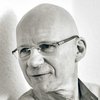
one: At the digital job and family compatibility week in September, you gave a well-attended keynote speech with the beautiful title "Retirement spring". It was all about "growing old as early as possible", i.e. living the "right" life before retirement. What does that look like, what tips do you have for this?
Michael Sigmund: I would like to come back to the keyword "age as a process": We mistakenly assign many problems to old age as such. However, we overlook the range of our own possibilities. Our genes only determine ten to 30 per cent of our health and life expectancy, the rest is down to our individual lifestyle.
This means that factors such as a healthy diet, sufficient sleep and exercise, social relationships and a healthy level of external stimuli and stress have a decisive influence on how we age. I also think it's important that we have a personal passion outside of work and all our commitments that we are passionate about and that gives us pure joie de vivre, for example a hobby.
And the closer we get to the end of our career, the more we have to deal with saying goodbye and letting go. And, as already mentioned, to ask myself what heart-filling and meaningful things can come into my post-professional life.
one: If ageing is a process, when should we start thinking about it?
Michael Sigmund : From the age of 40, 45, i.e. at the beginning of second adulthood, also known to some as the midlife crisis. Many challenges have now been overcome, such as establishing a career or starting a family. At the same time, there is a danger that we have become creatures of habit. But it is precisely at this point that other issues become increasingly important, such as health care, personal and sensory development or maintaining a relationship that may have become entrenched. We should therefore now take a careful look at our life balance and enrich our everyday lives accordingly.
one: The topic of "transition to retirement" is one of the fields of action for which measures will be implemented at the Cologne locations over the next three years as part of the job and family programme. Why is that?
Michael Sigmund: We are getting older and at the same time staying fit for longer. As a society, we have long recognised that commitment and participation, as well as development and career, are not a question of age. That's why we are looking at what framework conditions we can use to support employees in actively and individually organising their final years of work and the transition to retirement.
After all, the audit is about life-phase-conscious employee policy as an active corporate culture. This also means focussing on the situation and needs of the large group of older employees and thus supporting them in the final years of their careers and during the transition to retirement.
In addition, the imminent departure of the "baby boomers" poses a particular challenge for companies today. We must not only retain and secure the knowledge and experience of older people, but also promote their commitment and potential with a view to the future.
one: Malicious tongues like to say that older colleagues don't want to learn anything new and prefer to avoid new technology. Are such prejudices true?
Michael Sigmund: There are many prejudices and clichés when it comes to age. It is true that the brain deteriorates physically with age, but not necessarily mentally. On the contrary, it is actually surprisingly adaptable. We compensate for declining memory and processing speed with acquired knowledge, experience and routine. Studies also show that there is hardly any correlation between age and productivity - apart from professions where strength and agility are important.
„It is worthwhile for the company to take a look into the treasure chest of older employees.“

one: As an older person, let's say over 50, can or should you still aim for a classic career? Or has that ship sailed?
Michael Sigmund: A career is not a question of age, but a question of matching your potential with the job requirements. But even if I don't have a classic career as my goal, I can look back on my career to date to realise the skills, experience and resources I have acquired. Perhaps completely new approaches and ideas will emerge and previously unknown or unused potential will emerge.
It is also worthwhile for the company to take a look into the treasure trove of older employees and uncover their work and life experience, strengths, potential, networks and social skills. And this should also be an "all-round view" from the classic career opportunities to comprehensive utilisation of potential.
Whatever the individual case may be, I believe it is important for employees to see themselves as active creators in order to prevent stagnation, loss of energy and motivation.
one: We will all be working longer. Anyone who is 50 may still have 17 years ahead of them. That's too long to work without motivation. What advice would you give older people for a fulfilling working life?
Michael Sigmund : I would even want to include the under-50s and those just starting out in their careers. Precisely because of this still long period of time, the demands of the world of work and the political and social challenges and crises that we all face, I think perseverance and a long-term strategy are crucial.
But it's true: from the age of 40 or 50, we have to become much more mindful of ourselves, because the "impacts" come closer and hit us more sensitively. And that's why we should all give ourselves time. Take care of our health, become more resilient, utilise our energy well, feel the joy of life and connectedness with others.
Or as the Roman politician and philosopher Cicero put it: "There is nothing age must guard against more than surrendering to inactivity and indolence."
About the person
Lifelong learning is also an important professional topic for Michael Sigmund, 64. After joining REWE in 1992, he worked in training and further education, then in personnel development and now in the competence centre headquarters.

